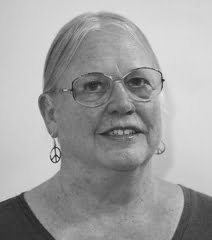Question: Our daughter is in her junior year of college. She’s very disenchanted with the demonstrations. She is not an activist and very serious about her studies but, because of the unrest on the campus where she’s attending, she wants to drop out for a year [until] the demonstrations have calmed down. We tell her that probably won’t happen and we really don’t want her to drop out for a year.
Her grades are great and we’re very proud of her accomplishments. We mortgaged our house to send her to the best college we could send her to and now we just don’t know quite what to do or what to tell her. We don’t think it would be a good idea to tell her she is making a mistake.
Your suggestions and or solutions will be most helpful.
Concerned Parents
Dear Concerned Parents,
I can understand your concern; there have been violent incidents at some institutions. When authorities are called to stop demonstrations innocent bystanders often get hurt. Two of the four killed at Kent State in 1970 were just watching during a break between classes. However, I wonder why, if you are funding the education, you are reluctant to be candid with your daughter about how you feel.
Given she is in her junior year of college she’s legally an adult so you have no control over her decisions. But if she isn’t supporting herself you have some leverage.
If you haven’t already, I suggest the three of you have a discussion … or several. First, concerning her fears, does she feel unsafe on campus? Has she been unable to study? Were there plans for her to pay you back for her tuition support once she was working? Maybe she’s afraid to graduate and get into the working world. Most higher education facilities have resources to help struggling students with issues like these. Has your daughter availed herself of these services?
Perhaps she’s changed her mind about her career path and is reluctant to tell you. This is more likely if you guided her into the choice. You could also ask about what she plans to do instead of finishing her degree. Will she be working in her chosen field?
Is there a way to complete her studies remotely? That’s another option to pursue.
Lastly, consider that college is more than classroom experiences. Learning to socialize with a diversity of people and exploring new ideas is also part of the maturing process. Some institutions are echoing the Vietnam era by holding teach-ins. It might be enlightening for your daughter to listen to some of the many viewpoints on the current world situation.
Hopefully your family can open up to each other and come to a solution satisfactory to all.
Peace,

Sharon Weisman,
Secular Humanist
Dear Concerned Parents,
It is admirable that you are listening to your daughter’s concerns, even if you’re struggling with them, rather than just dismissing the notion of leaving college “until things calm down.” After all, she probably didn’t like vegetables either, or her bedtime, or getting up for school, and you honed your parenting skills to see that she got both enough broccoli and a high school diploma. You would be forgiven for entertaining the temptation to simply put your foot down and say, “Stay in school or else!”
As wage-earning, mortgage-paying adults, we are often denied the luxury of being actively riled up by current events; we can get complacent trying to pay the bills. While your daughter might not agree with the content of the protests, or may be put out by the fact that she has to walk through them on the way to her classes, she can both witness and participate in something denied to citizens of other countries. Confronting the issues of campus protests and determining how she feels about those subjects is also a great opportunity to define her citizenship post-college. I disagree with people who say that college isn’t “the real world;” as adults we often build barriers to the real world with our purchases and our comfort. But your daughter can now reckon with real-world issues on campus the same way she is being exposed to them, in theory, in class. She may discover that her voice matters and that she can make a difference. It is an education that comfortable grown-ups often avoid. So I think she should stay in school and get that degree, and get two educations for the (steep) price of one.

Marty Barrett,
Author and Secular Humanist
